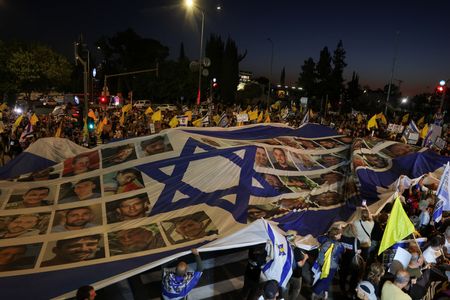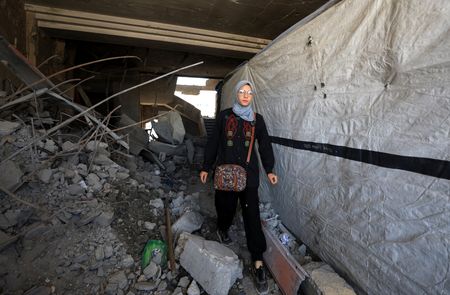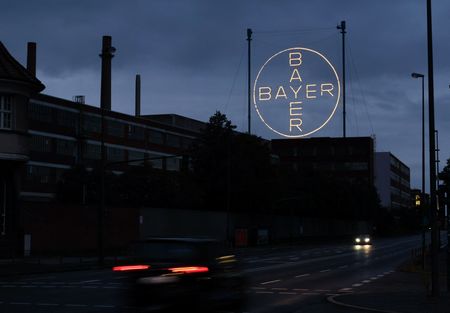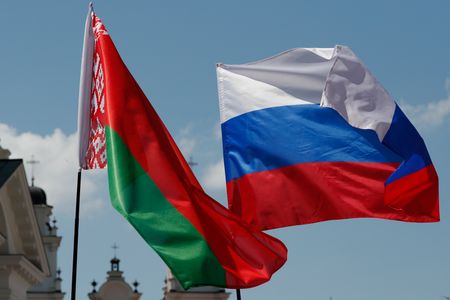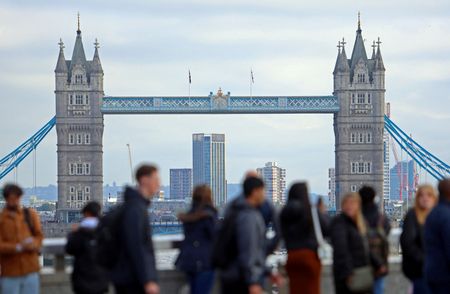(Removes extraneous words in intro and paragraph 22; no other changes to text)
By Emily Rose
JERUSALEM (Reuters) -A growing willingness among Israeli news media to critically explore the humanitarian crisis in Gaza has all but evaporated in recent weeks after militant group Hamas released videos of two emaciated Israeli hostages.
In late July, as images of starving Gazans stirred international outcry, some Israeli press and broadcasters began to carry reports on the worsening conditions there, urging a more robust aid response.
Yonit Levi, the main news anchor of Channel 12, branded the humanitarian crisis in Gaza a “moral failure” live on air, and the heads of some universities and the national Holocaust memorial appealed to the government to help hungry Gazans.
Israeli media has largely focused during 22 months of war on the trauma and impact on Israelis of Hamas’ Oct. 7, 2023 attack, in which, according to Israeli tallies, some 1,200 people were killed and 251 taken hostage. Coverage has concentrated on the fate of the hostages and the casualties suffered by the Israeli army.
Some Israelis welcomed Levi’s comment and the spate of reports discussing conditions in Gaza as evidence of a readiness to examine the impact of the war on Palestinian civilians.
But the mood in Israel hardened dramatically when, on July 31, Hamas released a video of the skeletal 21-year-old Israeli hostage Rom Braslavski, weeping and in pain. It was followed three days later by a video of Evyatar David, 24, who said he was being forced to dig his own grave.
The videos – which one Palestinian source said were designed to show the terrible impact of restricted aid flows in Gaza – backfired, shutting down the growing sympathy in Israel towards civilians there.
Amid international condemnation of Hamas, thousands of protestors took to the streets in Israel to demand the immediate return of the hostages. About 50 hostages are still in Gaza, but only around 20 of them are thought to still be alive.
Uri Dagon, deputy editor-in-chief of Yisrael Hayom, Israel’s most widely circulated newspaper, said that with hostages being held by Hamas in Gaza, Israelis “don’t have the ability to experience the pain of the other side.”
“I know that sounds terrible but it’s the truth,” he said.
Dagon accused foreign media of falling into a “campaign of lies” about starvation in Gaza: while his paper had published articles on suffering there, it emphasized that Hamas was to blame. He questioned why foreign outlets that published photos of emaciated Gazans had not given the same prominence to the harrowing images of Evyatar David.
“I suggest senior editors in the international press review themselves and only then discuss how the Israeli press is conducting itself,” Dagon said.
DENIALS OF STARVATION
Polls in the wake of Oct. 7 that showed most Palestinians approved of the attack sowed anger in Israel. Videos of Gazans crowding around hostages in the immediate aftermath of the raid, filming them on their mobile phones, spitting on them and beating them also fuelled lasting resentment.
Harel Chorev, a senior researcher Moshe Dayan Center at Tel Aviv University specializing in media and Palestinian society, said such incidents made it difficult for many Israelis to feel sympathy for people in Gaza.
While international media, barred by Israel from entering Gaza, have relied on Palestinian journalists, many Israelis have little faith in their reporting. Some cite the lack of press freedom in Gaza under Hamas’ authoritarian rule.
“I don’t think there is a famine in Gaza,” said Orit Maimon, 28, a lawyer from Tel Aviv. “I don’t think the situation there is ideal or very good but I don’t think there is a famine.”
The Gaza health ministry says 222 people have died of starvation and malnutrition, including 101 children, since the war began.
Right-wing Channel 14 has devoted coverage in recent weeks to discrediting some reports of starving children. When a child featured in a front-page photograph in Britain’s Daily Express newspaper was discovered to have a pre-existing health condition, some Israeli outlets reacted with outrage.
A poll released this month by The Israel Democracy Institute, a Jerusalem-based think tank, found that 78% of Jewish Israelis think Israel is making a substantial effort to avoid Palestinian suffering while only 15% think Israel could do more and chooses not to.
The Israeli offensive makes reporting in Gaza perilous. According to the Palestinian Journalists Syndicate, a professional body, Israel has killed more than 230 journalists in Gaza since November. Reuters was unable to verify those figures independently.
Israel denies deliberately targeting journalists and says many of those killed were members of militant groups working under the guise of the press.
On Sunday, Israel’s military said it killed an Al Jazeera journalist in an airstrike: it accused 28-year-old Anas Al Sharif of being a Hamas cell leader. Al Sharif had rejected the accusations, which Israel made before he was killed, and rights advocates said Al Sharif was targeted for his reporting.
More than 61,000 Palestinians have been killed by Israel’s military campaign, according to Gaza health officials
CRITICISM OF THE GOVERNMENT
Polls conducted over the course of the war found that around 70% of the Israeli public wants to see Israel make a deal to release the hostages, even if that means ending the war immediately.
Several Israeli media have criticized Netanyahu’s government for failing to bring the hostages home or to enunciate a clear plan for Gaza after the conflict. Amongst its most outspoken critics has been left-leaning newspaper Haaretz, which has also published considerable reporting on the suffering in Gaza, including investigative pieces on army operations there.
In November, Netanyahu’s cabinet – which includes far-right ultranationalist parties – approved a ban on officials talking to Haaretz and government advertising boycott of the paper, accusing it of supporting “the enemies of the state in the midst of a war”.
The Israeli prime minister’s office declined to comment for this story.
Netanyahu’s ministers have also put forward a proposal to privatize Channel 11, the public broadcaster, which a spokesperson for his Likud party criticized for serving the radical left and damaging Israelis’ morale. Some media experts have warned this could have a chilling effect on media coverage of the government.
Asa Shapira, head of the Marketing and Advertising studies at Tel Aviv University, said the government’s actions impact what Israeli channels decide to show.
While editorial decisions to focus on the fate of Israeli hostages was a response to public concern, there was also fear of attracting government disapproval, he said.
(Additional reporting by Nidal Al-Mughbrabi in Cairo and Michal Yaakov Itzhaki in Jerusalem; Writing by Michael Georgy; Editing by Daniel Flynn)

